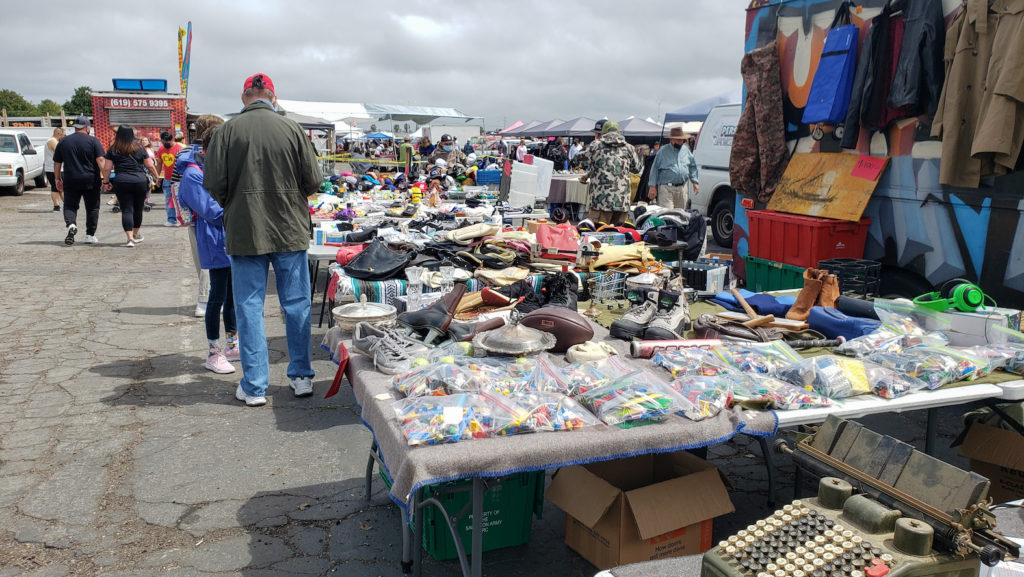One of my first experiences in gainful employment was that of a paperboy. To the uninitiated, a paperboy was usually a kid with a bike and two overly laden canvas saddle bags draped across the handlebars, tossing newspapers onto lawns and front porches along a specific route.
Dodging cars and out-peddling territorial dogs were occupational hazards. But there were perks, and for me the biggest perk was trash day. On the day when people were throwing stuff away, I was on the lookout for fresh acquisitions. In my travels, I brought home spare bicycle parts, sporting equipment, and my most prized possession: a somewhat bedraggled mounted mule deer head. That tenuous taxidermy hung in my room for years until my mother finally insisted that I put it in our trash for the next treasure hunter to find. One man’s trash may be another man’s treasure, but a lot of times one man’s trash is just trash.
To the chagrin of my wife, I still have a penchant for trash. Whenever we are on a road trip and I see a sign for a swap meet, I must demonstrate a heightened sense of discipline not to take the off ramp.
But just last Sunday, I was left to my own devices — and vices, if you ask my wife — and I visited a swap meet in the valley. I had no adult supervision and spent a couple of hours loitering through booth after booth of every category of cultural kitsch, with some legitimate antiques thrown in for good measure.
It was a sensory overload of clutter. I was tempted to buy an old movie poster from the 1950s, and an “air plant” as a love offering to my wife, just in case I bought the poster. There were musical instruments, none of which I play, and a wide assortment of furniture that looked like one had to be a contortionist to sit in. I broke out of my stupor when I started doing some serious people watching.
Maybe because it was Sunday, and I was fresh from 8 a.m. Mass, that I saw this group of swap-meet denizens as a kind of quasigroup of believers. They were all gathered for a singular purpose, seemed to observe certain rubrics and rituals, and I had the feeling many of them attended weekly swap meet services across the Southland.
It was easy to tell the “regulars,” regardless of their particular demographic category. There were young hipsters who seemed drawn to the kitschiest objects of art and clothing. The more seasoned members of this community were looking for specific antiques, mid-century furniture, or folk art. When I saw the guy with The Doors T-shirt who had to use a walker to get around, I thought it was time to go.
I left not completely empty-handed, though. Seeing people rooting through what others had considered trash took me back not just to my own dumpster-diving days as a paperboy, but made me think about all the leftover items our family relied on.
Secondhand things were the modus operandi in our household. With 10 kids and a grocer’s salary, it was always going to be a used car, usually a Ford Country Squire station wagon with a proclivity for having its radiator boil over trying to haul a bunch of people and a utility trailer full of camping gear up the Grapevine outside of Bakersfield.
The only new clothes I ever had as a kid were the school uniform corduroy pants I received every September, whether I liked them or not. When it came to “dress” shirts, which were required — not by papal decree but from my parents — I had, thanks to having six older brothers, an endless supply of buttoned-down short-sleeved shirts. At the swap meet, those same outdated shirts commanded a high price. Who would have guessed I was a fashion maven as a 10-year-old?
We were not poor. We were like so many other families in our parish in 1960s Archdiocese of Los Angeles. Most of the kids I knew wore hand-me-down clothes and also drove in station wagons of dubious dependability. They were not poor either. They were just big families with parents who sacrificed things that do not really matter for things that did.
Maybe all the paintings of bullfighters on velvet and oil portraits of nightmare-inducing clowns will make the swap meet people happy. And maybe me not coming home with that movie poster is progress, but I’m glad for the solo trip for reminding me of all the stuff I do not need, and what things really are important to have and to hold.

